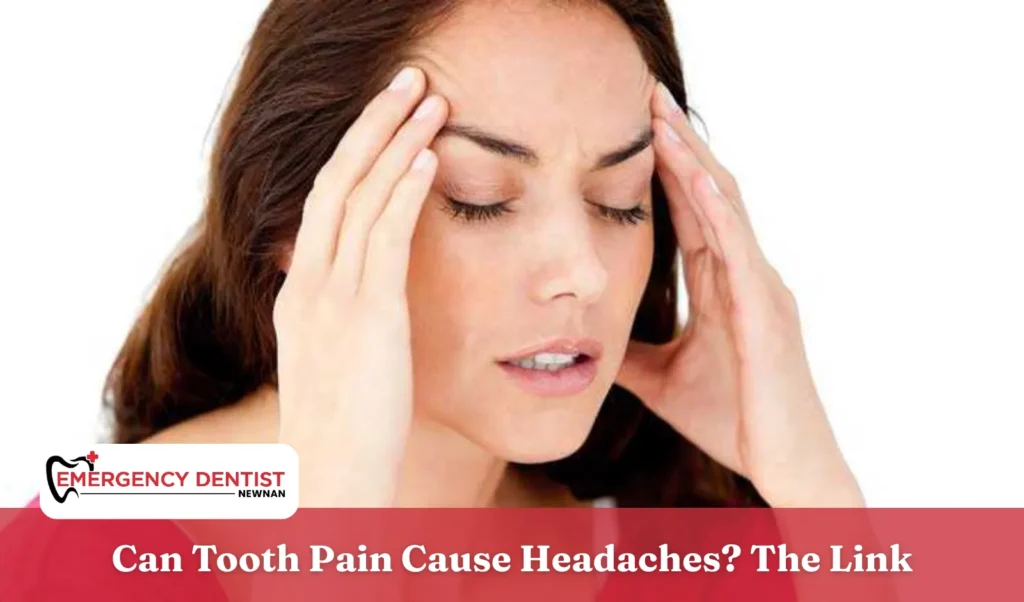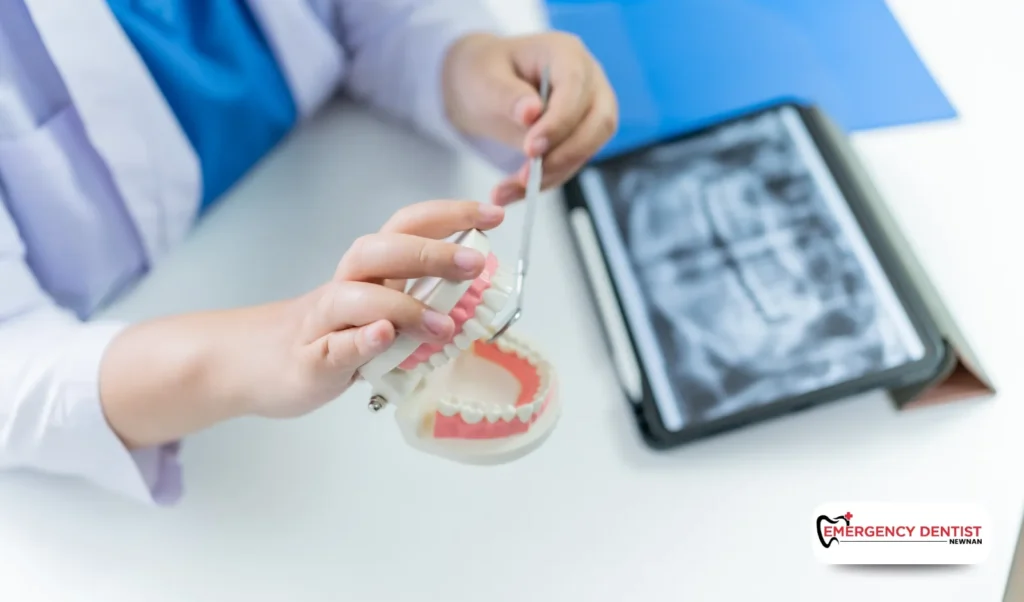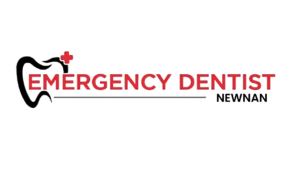Can Tooth Pain Cause Headaches? The Link

Have you ever wondered, can tooth pain cause headaches? The answer is a resounding yes. Many dental problems, from tooth infections and gum disease to jaw misalignment can lead not just to a toothache, but also a toothpain headache or headache and tooth pain combined. Even routine dental treatments like whitening can heighten sensitivity, revealing deeper oral health issues. If you’re in Newnan, GA, seeing a qualified emergency dentist may be necessary.
How Tooth Pain and Headaches Are Connected
Your head and mouth are connected through the trigeminal nerve, which runs from the jaw to your cheeks, temples, and forehead. When this nerve is irritated by an infected tooth, TMJ (temporomandibular joint disorder), or gum disease, it can cause referred pain. This results in discomfort not only in the tooth but also as a toothpain headache or ongoing headache and tooth pain.
Common Dental Triggers of Toothaches and Headaches

Tooth Infections or Abscesses
Infected teeth or deep cavities can inflame the nerve, often causing sharp toothaches and headaches.
Grinding exerts constant stress on jaw muscles and often results in tension-style headaches.
TMJ Disorders
Dysfunction in the jaw joint (temporomandibular joint disorder TMJ) can lead to facial pain and chronic headaches.
These can create jaw pressure or mimic a sinus infection, intensifying discomfort.
Sinus Infections
Close proximity to the upper teeth allows sinus infections to cause tooth-like pain and headaches.
Cracked Tooth Syndrome
Small, almost invisible tooth fractures can irritate inner nerves and mimic migraine-like pain.
Diagnosis by Local Dental Professionals

Dental experts in Newnan often diagnose these issues through:
- A visual exam to check for signs of decay, fractures, or pus
- Digital X-rays to inspect tooth roots and sinus cavities
- An evaluation of TMJ alignment and bruxism habits
- A review of your headache and tooth pain history and triggers
Timely diagnosis is critical to avoid rare but serious conditions, like cavernous sinus thrombosis.
When to Call an Emergency Dentist in Newnan
If you experience any of the following, you should see an Emergency Dentist in Newnan immediately:
- Severe or spreading tooth pain and headaches
- Facial or gum swelling, fever, or signs of an abscess
- Difficulty chewing, biting, or fully opening your mouth
- Any sign of infection or persistent jaw tension
Preventive Dental Care Tips
To maintain dental health and minimize toothaches and headaches, consider:
- Brushing and flossing daily with a soft-bristled toothbrush
- Wearing a night guard if you grind your teeth
- Avoiding sugary foods that promote decay and gum disease
- Using caution with aggressive teeth whitening or other dental treatments
- Visiting your dentist regularly for preventive dental procedures
- Trying home remedies like applying a cold compress for temporary relief
Tooth Pain While Pregnant
Pregnant women frequently experience tooth pain while pregnant due to morning sickness and hormonal changes, which can lead to enamel erosion and gum disease, often causing referred pain and headaches. Most treatments are safe in the second trimester, but always consult both your obstetrician and dentist in Newnan.
Don’t Ignore That Toothache, Take an Action
So, can tooth pain cause headaches? Yes, definitely. Whether because of TMJ, an infected tooth, or even a sinus infection, many dental problems present as head pain. Early intervention and proper dental care can prevent serious complications such as cavernous sinus thrombosis.
If you’re suffering from toothache and headache, don’t delay. Contact an Emergency Dentist in Newnan now to safeguard your oral health and get effective relief.
Frequently Asked Questions
Can Dental Pain Contribute to the Onset of Headaches?
Yes, tooth pain can indeed lead to headaches. This phenomenon often occurs when dental conditions such as an infected tooth, periodontal disease, or temporomandibular joint (TMJ) disorder, irritate the trigeminal nerve, which connects the teeth, jaw, and facial structures to the brain. The resulting nerve irritation may produce referred pain that manifests as a headache, commonly referred to as a “toothache headache.”
What types of dental problems are commonly associated with headaches?
A variety of dental conditions are known to contribute to headaches. These include dental abscesses, bruxism (teeth grinding), temporomandibular joint disorders, cracked tooth syndrome, and impacted wisdom teeth. Such conditions often cause inflammation or place pressure on nerves, thereby inducing both dental pain and headaches.
How does the trigeminal nerve contribute to both headache and tooth pain?
The trigeminal nerve is a major cranial nerve responsible for sensory information in the face, including the teeth and jaw. When this nerve becomes inflamed or irritated due to dental pathology, the resulting pain may extend beyond the oral cavity, causing tension-type or migraine-like headaches.
Can a sinus infection mimic toothache and cause headaches?
Yes, sinus infections can create pressure within the sinus cavities, particularly those located near the upper molars. This pressure can lead to symptoms that closely resemble tooth pain, accompanied by sinus-related headaches. A qualified dental professional can assist in differentiating between pain of dental origin and that caused by sinus infections.
Is tooth pain during pregnancy a concern?
Tooth pain during pregnancy is a relatively common occurrence. Hormonal changes and morning sickness can compromise tooth enamel and elevate the risk of gingival inflammation or gum disease, both of which may contribute to headaches. Pregnant individuals are encouraged to maintain rigorous oral hygiene and seek guidance from their dental care provider to ensure safe and effective treatment.
Is Temporomandibular Joint (TMJ) Disorder Capable of Causing Both Dental Pain and Headaches?
Yes, temporomandibular joint (TMJ) disorder frequently leads to jaw misalignment and muscle tension, which can result in chronic headaches, facial discomfort, and dental sensitivity or pain. Effective diagnosis and management by dental and medical professionals can help alleviate these symptoms.



